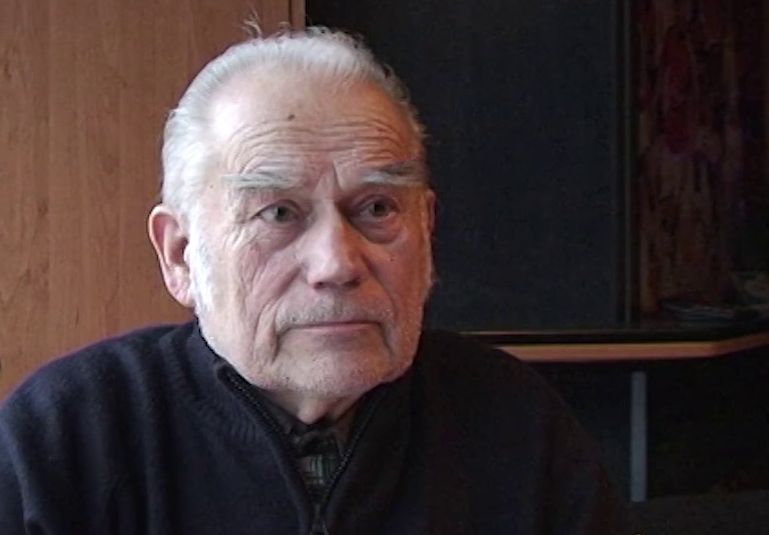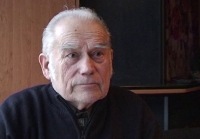I had to memorize the entire statement. I got 14 years for fictitious sabotage.

Download image
Ladislav Trejbal was born on 1 February 1931, in Bořkov, where his parents, Josef and Anastázie, had a small farm and where he attended the municipal school. At the beginning of the 1950s, the communists confiscated the Trejbals’ fields, and in exchange, they were given smaller and less accessible plots of land. After the war, Ladislav Trejbal started working in a textile factory in Košťálov. One time, he protested against not being paid overtime for weekend work, and he was dismissed and had to work for six months in a quarry. He then joined the Autorenova company. In 1951, he met Miroslav Mochan, who was one of the leaders of the anti-communist resistance group ILPKORG 1 (illegal anti-communist organisation) in Semily and its surroundings. Mochan connected Trejbal with other resistance fighters from ILPKORG 1, Ota Vrbenský and Jiří Naděje. The group was larger (28 people were later tried in the trial of the so-called Semily group), but Trejbal did not know the other members. Ladislav Trejbal started cycling around the villages with Miroslav Mochan, where they distributed leaflets with the names of local informers. They moved around Semily on routes between the villages of Bořkov, Košťálov, Nová Paka, Nedvězí, Slaná and Hořensko. In 1952, Trejbal had to enlist in the army. There, he received a warning from his friend Ladislav Vojtíšek that Miroslav Mochan, his brother and other people from the ILPKORG 1 group had been arrested. On 10 October 1952, State Security also came for Ladislav Trejbal. He was taken to Liberec, where he was brutally interrogated for six months. The trial of the Semily group took place at the Regional Court in Liberec on 27 and 28 March 1953, with Dr. Číhal presiding over the trial. Ladislav Trejbal had to memorise his entire testimony and was found guilty of the crimes of treason and sabotage. He was alleged to have committed sabotage by disrupting the railway line near the stop between Bořkov and Nedvězí stations. However, there was no bus stop at the site, and the case was completely fabricated. Trejbal was nevertheless sentenced to 14 years of imprisonment, loss of civil rights and forfeiture of property. After a short period of internment in Prague at Pankrác, Ladislav Trejbal was transferred to the Jáchymov uranium mines. His longest imprisonment was in the Rovnost camp, where he remained for over 7 years. He worked at the mine shaft, taking various positions from railwayman to layman, to unloading worker, to mine locomotive driver. He was released on parole in 1960. He first found work in a quarry, then worked for several years in a concrete panel-making factory. In the mid-1960s, he moved to the metal works and from the 1970s worked as a maintenance worker. Already in 1960, he was rehabilitated by the Regional Court in Ústí nad Labem in the case of treason, but not in the case of an imaginary act of sabotage. On 23 January 1991, the Supreme Court rejected Trejbal’s complaint against this verdict, and it was not until 1992 that Ladislav Trejbal was fully acquitted of the charges. Ladislav Trejbal received the award for participation in the anti-communist resistance. He died in 2014.
